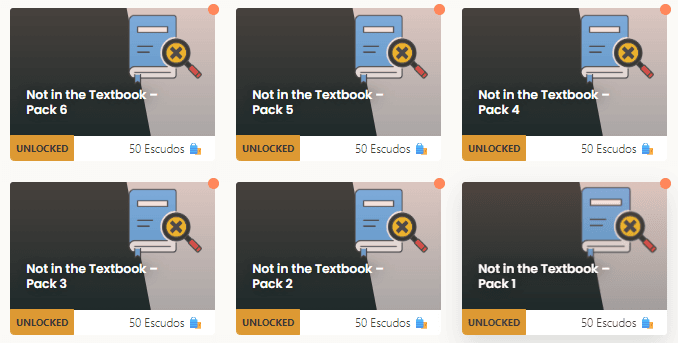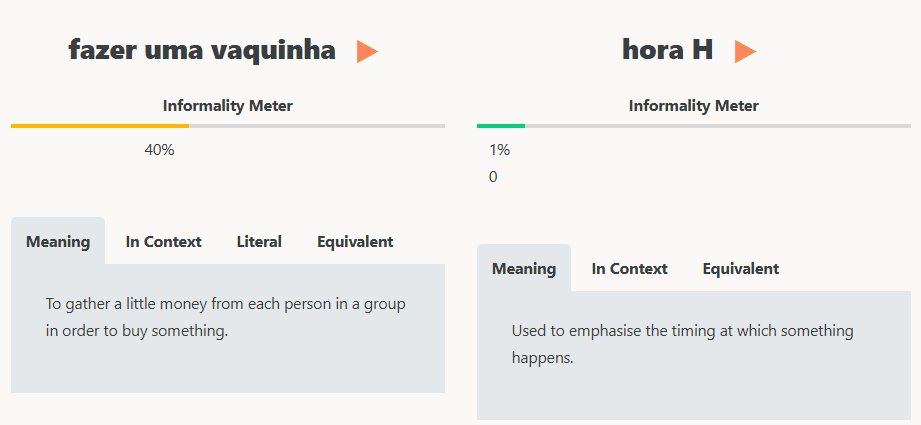Top 10 Everyday Portuguese Sayings in English
When you first start to learn languages, you usually focus on aspects like vocabulary and verb tenses. After all, without these elements, you will have a hard time communicating. Nonetheless, as you continue learning, you will see how entangled language and culture are.
For example, if you already speak English, it is unlikely that you do not know a single English idiom. Instead, it is much more likely that you not only know many but also use them almost without thinking. The same goes for any other language, including Portuguese.
Most learners start by exploring common Portuguese phrases, which is undoubtedly helpful. However, for those who understand the importance of immersing themselves in the culture, it is hardly enough. Previously, we have looked into funny sayings, like Tirar o cavalinho da chuva
- Pôr-se fino
- Passar pelas brasas
- Estar a treinar para burro
- Fazer das tripas coração
- Ir aos arames
- Pôr-se na alheta
- Estar a bater mal
- Não dar a bota com a perdigota
- Bola para a frente
- Custar os olhos da cara
Discover what each phrase means and its direct translation into English. Explore how you can apply these sentences in real-life conversations. After all, can you really say you are fluent if you do not know how to use idioms? Portuguese people love and use them every day. From now on, you can too.
Language Learning Through Portuguese Expressions
Exploring idioms is just one of the strategies you can apply to immerse yourself in a foreign language. At Portuguese With Carla, we focus on helping you learn European Portuguese, the variant spoken in Portugal. Our approach emphasizes exposure to the way native people talk.
Portuguese opens the door to many exciting opportunities in personal and professional life. With our course, The Journey, you will dive into the culture and gain the confidence to make it a language of your own. Are you ready to get started? Click HERE to learn more and start your journey!
Idioms and sayings are essential elements of any language. They reflect local history, traditions, and ways of thinking. Plus, they are rewarding to learn. Understanding the meaning behind them and using them in conversation is like unlocking a new side of the language. It helps you connect with native speakers and show respect and appreciation for their culture.
10 Idioms From Portugal: Portuguese Sayings in English
Similar to what you will find in other languages, Portuguese sayings often have a literal translation that is different from their actual meaning. This aspect makes them particularly interesting and challenging to learn.
For example, the phrase Mais vale um pássaro na mão do que dois a voar
Understanding Portuguese sayings will help you mingle with the locals. You will acquire their vocabulary and cultural reasoning, allowing you to describe situations and emotions more expressively. Knowing these phrases can also help you avoid misunderstandings and miscommunications. But, above all, doing so will improve your language skills and make you a more effective communicator in Portuguese.
Pôr-se Fino
Pôr-se fino
Passar Pelas Brasas
Passar pelas brasas
Estar a Treinar Para Burro
This fun expression is for close friends and family only. Its literal translation is To be training to be a donkey. It can be used ironically or as a reprimand to show someone is working hard but not wisely. It refers to putting in a lot of effort without smart planning.
Fazer das Tripas Coração
The literal translation of Fazer das tripas coração
Ir aos Arames
Originating in the First World War, Ir aos arames
Pôr-se na Alheta
This unique expression comes from nautical terminology, where it means positioning a ship to catch the wind and sail faster. It means to leave quickly, to bail out, or to take off in a hurry, usually to avoid a difficult or awkward situation. It is usually confrontational and can be used matter-of-factly or with irony.
Estar a Bater Mal
The translation of Estar a bater mal
Não Dar a Bota com a Perdigota
Another unique Portuguese idiom is Não dar a bota com a perdigota.
Bola Para a Frente
The origins of this expression are unknown, but its meaning likely relates to soccer. The literal translation of Bola para a frente
Custar os Olhos da Cara
This final expression is not only common in Portuguese, but it has versions all over Europe. Custar os olhos da cara
Sayings Used in European and Brazilian Portuguese
Despite sharing the same language, Portugal and Brazil have very distinct cultures. The language had different influences and evolved differently in both countries, creating its two main variants. In Brazil and Portugal, Portuguese shows changes in vocabulary, grammar, and pronunciation.
Still, there are many Portuguese expressions you can use with your Portuguese and Brazilian friends. They share the most polite expressions like Obrigado
Ultimately, these and other Portuguese-speaking countries share a common language. Thus, speakers of one variety can generally understand speakers of the other. Here are five common idioms you can use when interacting with Brazilian and Portuguese people.
Viajar na Maionese
One of the funniest Brazilian Portuguese sayings is Viajar na maionese
Fazer uma Vaquinha
Fazer uma vaquinha

Image Credit: “Mechanical Bull Rental Fort Worth” by https://bestmechanicalbulls.com/
Comprar Gato por Lebre
Another expression common in other Romance languages is To buy a cat for a hare. The Portuguese phrase Comprar gato por lebre
Ter Dor de Cotovelo
The pain that results from hitting your elbow is strong and persistent. Thus, Portuguese speakers use the saying Ter dor de cotovelo
Pôr a Mão na Consciência
No Portuguese sayings list would be complete without this idiom. It is simple to understand from its translation: Put your hand on your conscience. It means to reflect on your actions and examine your conscience. It is often used to encourage someone to understand whether they are in the right or if their conscience might be accusing them of something wrong.
Did you know that in The Journey, you get a section full of colloquial sayings and expressions? This feature, called Not in the Textbook, is included in your subscription. It helps you learn dozens of Portuguese sayings, along with their meaning, pronunciation, literal translation, and English equivalent. We even added an informality meter so you can know exactly when and how to use each phrase.
Practical Applications of Portuguese Sayings
Portuguese sayings apply in almost all contexts, including everyday life and business. Of course, you will find that some are not a good fit for all situations. For example, you do not want to say São muitos anos a virar frangos
Similarly, you might want to watch out for proverbs like Quem feio ama, bonito lhe parece
Still, many idioms are appropriate even in formal situations. For example, consider the Portuguese proverb Quem tem boca vai a Roma
The secret to knowing what proverbs to say and when is to understand their meaning and the situation. When you learn to read the environment, you can easily include a popular expression in the conversation. You might feel a bit nervous in the first few tries, but you will be surprised by the positive reaction of the person you are speaking to.
Our Top 10 Portuguese Sayings in English
Idioms are not most language learners’ top priority. However, they are a crucial aspect of any language. They shed light on local culture, reflecting age-old traditions and historical events. Besides, learning them will help you avoid miscommunications and feel more comfortable with a foreign language.
The Portuguese language has many such sayings, whether originating in Portugal or Brazil. Learning and using them will bring you closer to the Portuguese speakers, showing respect for their culture.
These are not polite expressions like Por favor
So, what is your favorite Portuguese idiom? Which one do you use the most? Comment on it with us below!
Would you love to speak Portuguese like a native? Discover The Journey – an adventure that will help you learn Portuguese from Portugal. Its immersion-focused approach allows you to explore different aspects of the culture, including idioms. What are you waiting for? Click the button below to learn more!
Learn European Portuguese the Instinctive Way!
For the last decade, we’ve been working on putting together the best possible European Portuguese course. After much research, feedback from our students, and several iterations, we think we’ve got it! 😉
At the base of it all is a sound conviction that languages are better learned instinctively, so the process needs to be engaging, varied, and enjoyable. Throughout, we used scientifically proven techniques to help you master pronunciation, phrase construction, oral understanding, grammar, and all the necessary bits to get you to fluency. And still, the whole thing is presented as an adventure. It’s a course like no other. Click the button below to see for yourself!









